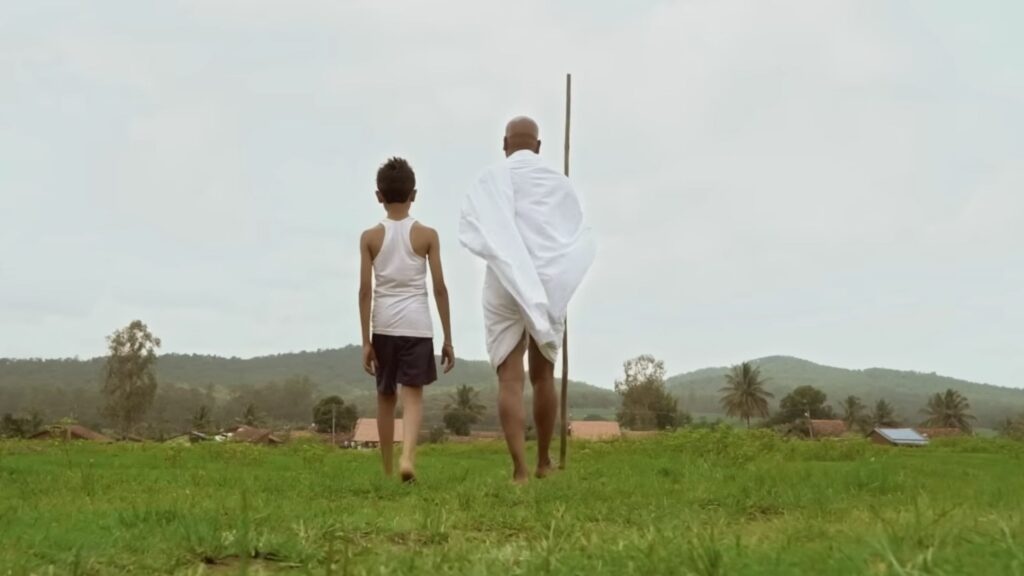Title: Kite Brothers, Producers: BS Manjunath, Rajanikanth Rao Dalavi, Manjunath Bagade, Director: Veeren Sagar Bagade, Cinematography: Ashok Cashyap, Music: Anish Cherian, Cast: Praneel Nadgir, Samarth Aashi, Vinod Bagade, Ananth Deshpande, Prabhu Hanchinal, Shreya Harihar, Rajiv Singh Halavayi, Kiran Bagade, Lakshmi Halavayi, and others.
Kite Brothers is a highly engaging and socially relevant film that appeals to children, adults, and even policymakers. The story delivers a gentle yet firm reminder about the neglected condition of government Kannada schools. Through the actions of determined children, the film offers a symbolic “slap on the face” of the system—delivered politely but with deep conviction.
The central question it raises is powerful: when children take extreme steps to protect the dignity of their school, what should the role of the government be in such a situation? The film revolves around two friends, Hanumanthu and Sriram, who win a national kite-flying competition. Their victory becomes a metaphor for hope and action, opening the eyes of society. It’s a wake-up call for adults to learn and act before the younger generation grows restless.
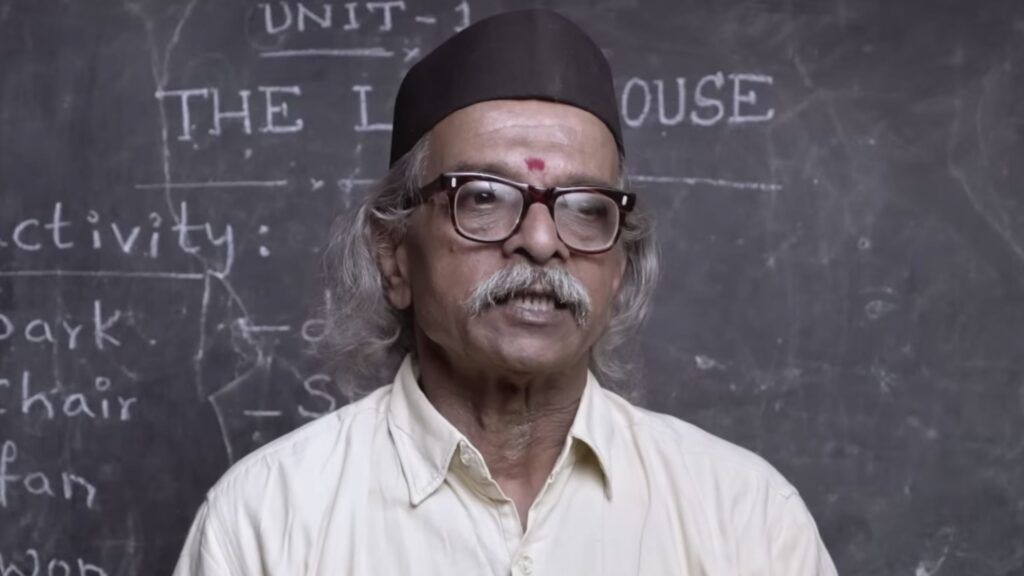
One of the standout aspects of Kite Brothers is its authentic use of the Uttar Kannada dialect and realistic rural setting. The film features mostly first-time actors, yet their sincerity and natural performances make this production a fine example of the right film made at the right time.
Drawing a parallel to the Ramayana, where Hanuman plays a pivotal role in rescuing Sita from Ravana, this film presents “the system” as the modern-day Ravana. Here, Hanumanthu, supported by Sriram, battles against that system to achieve a noble cause. However, the first half of the film could have benefited from tighter editing—trimming about 20 minutes would have made it more engaging.
Cinema should not only entertain but also educate and inspire, and this is exactly what Kite Brothers accomplishes with brilliance. It’s now up to the government to take note of the film’s message and act on it.
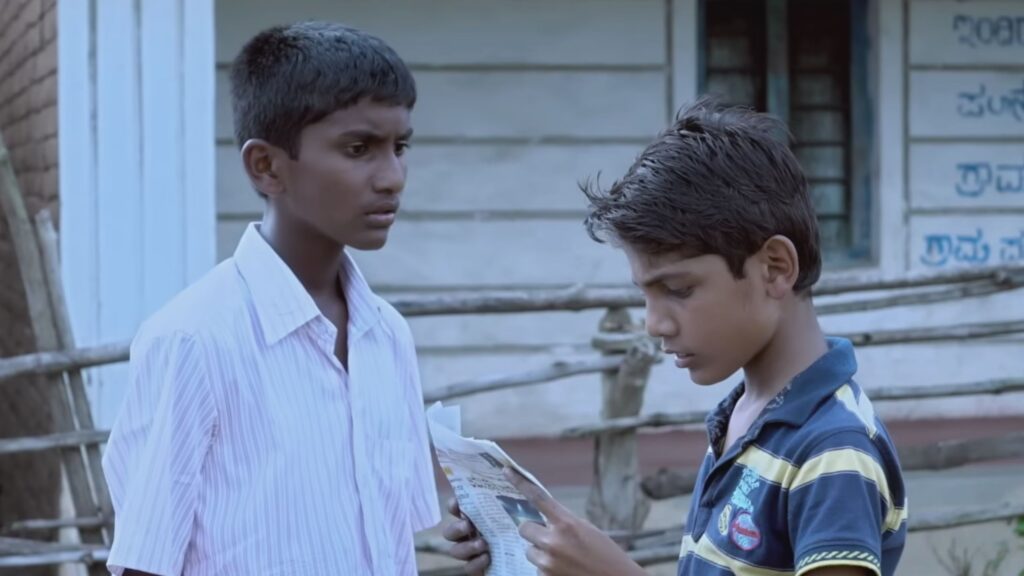
The story follows Sriram (Praneel Nadgir), a bright student from an English-medium school, who joins hands with the equally dynamic Hanumanthu (Samarth Aashi) after heavy rains destroy their village’s government school building in Honnapura.
Motivated by a newspaper report, the duo runs away to Bengaluru and then to Ahmadabad to participate in a national kite-flying competition. Their goal is both noble and touching: to win the first prize and donate the winnings to their schoolteacher (Ananth Deshpande) for rebuilding the school. This sequence is an emotional highlight and an eye-opener. The depiction of how Karnataka students triumph at the national level—through clever “kite engineering”—is both inspiring and cinematic.
While government authorities in the film turn a blind eye to the school’s plight, others around the children show empathy in unique ways. Director Veeren Sagar Bagade deserves credit for this thoughtful and creative approach.
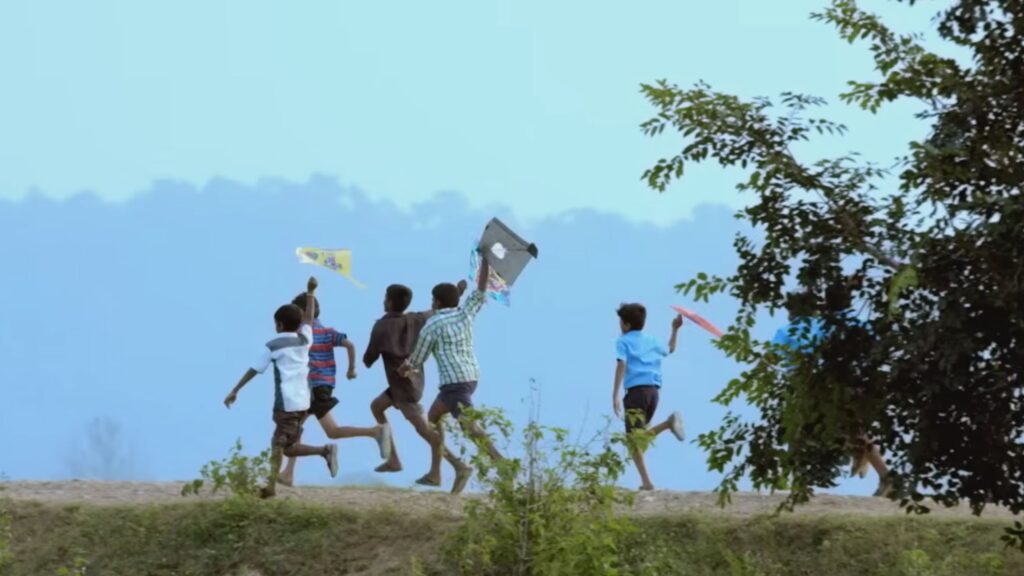
Performances by Praneel Nadgir and Samarth Aashi are natural and heartfelt, making them strong contenders for awards. Ananth Deshpande, as the schoolmaster, delivers a performance reminiscent of literary great Da. Ra. Bendre—a true bonus for the audience.
Supporting actors, including Abhishekh Mudareddy (Babya), Shvakumar (Petlya), Sridhar Kori (Bade Sab), Vinod Bagade (mentor), Shreya Harihar (mentor’s stepdaughter), Prabhu Hanchinal (Hanumanthu’s father), Anasooya (mother), Rajiv Singh Halavayi (Sriram’s father), Lakshmi Bai (mother), and Kiran Bagade (kite competition anchor), all contribute admirably.
The film’s songs are beautifully written, with high-quality lyrics and memorable melodies. Composer Anish Cherian shows great promise for a bright future in music. Veteran cinematographer Ashok Kashyap’s work is another major strength—the kite competition scenes are captured with striking beauty and technical excellence.
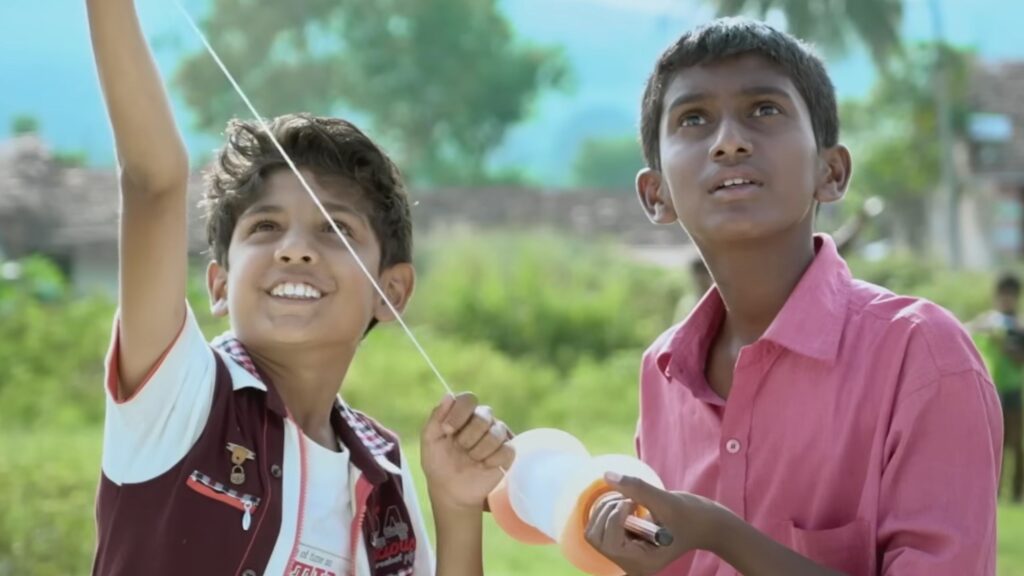
The dialogues are fresh and lively, enriched by the authentic Uttar Kannada slang. Lines like “Appa and Amma compared to Vatsalya and Love” and the slogan “Gellakke antha horatiddeve, ade guarantee” (We are fighting to win, and that’s the guarantee) add local flavor and emotional depth.
In conclusion, Kite Brothers is a must-watch Kannada film—educative, entertaining, and deeply thought-provoking. It is not just a movie but a message to society and the authorities alike.

